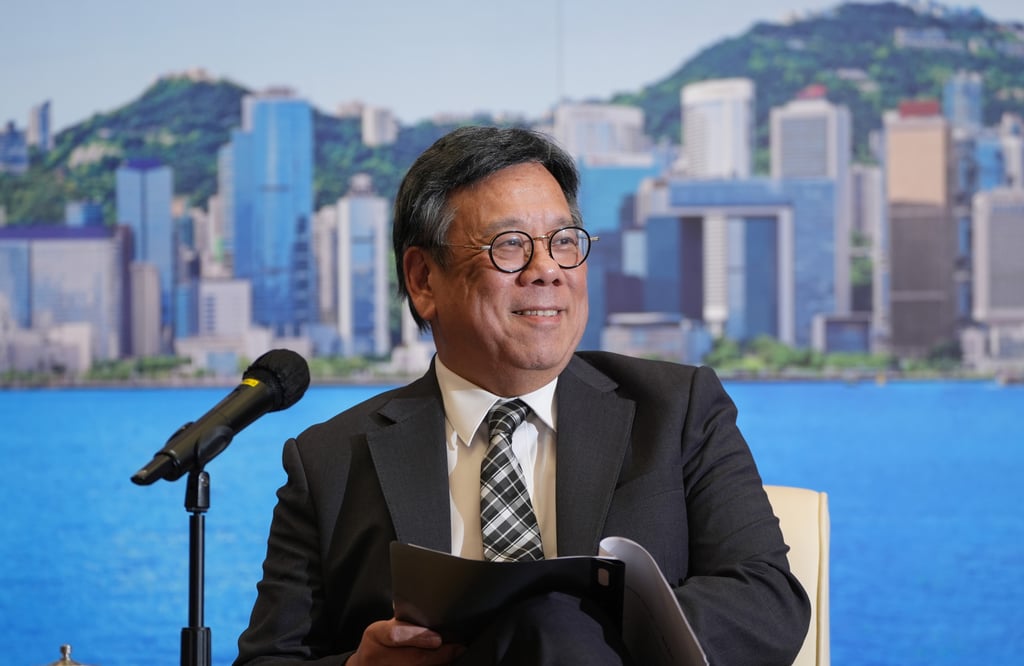Hong Kong’s commerce minister has ruled out reintroducing a pandemic-era special guaranteed loan scheme to help small and medium-sized enterprises (SMEs) despite the economic downturn, highlighting the huge burden it would put on the public purse.
Secretary for Commerce and Economic Development Algernon Yau Ying-wah said on Saturday the latest default rate of the “Special 100% Loan Guarantee Scheme” stood at 9.2 per cent since its launch in 2020, with the government shouldering a loan guarantee amount of HK$13.2 billion (US$1.7 billion).
The government stopped accepting applications for the scheme at the end of March.
“The scheme was introduced in Hong Kong during the pandemic when the economy almost ground to a halt because of the closing of borders. It was a special measure to help SMEs,” Yau told a radio programme.
“As the economy gradually recovers, it’s a heavy burden on the government if we maintain a 100 per cent loan guarantee,” he said.
“We will keep a close eye on the situation, but as it stands, there is no decision to reintroduce the scheme.”
Hong Kong’s de facto central bank on Friday set up a new task force to help small and medium-sized businesses that faced pressure to repay loans and nearly a dozen of city banks have promised to provide fair and quicker access to borrowing.
Concerns about problems faced by such businesses resurfaced after real estate industry representatives met authorities earlier this month to discuss the tightening of property loans by banks amid a stuttering post-pandemic recovery.
Yau said HK$143.2 billion was approved under the special scheme introduced during the pandemic for about 67,000 cases that helped 40,000 businesses with a total of 400,000 employees.

The latest default rate of the scheme of 9.2 per cent, as well as the loan guarantee amount from the defaults, saw a sharp increase from 5.49 per cent and HK$7.5 billion respectively by the end of October 2023.
George Leung Siu-kay, a senior adviser in the CEO’s office at Hang Seng Bank, said on the same programme that the looming interest rate cuts in the United States might improve the market.
“When there are interest rate cuts, the cost of loans for enterprises would be relatively lower. If we are taking that into consideration alone, that could help stimulate market sentiments and business volume might go up,” Leung, formerly the Hong Kong General Chamber of Commerce CEO, said.
He added he expected two rounds of interest rate cuts in the states totalling 0.5 per cent by the end of the year, with a 0.25 per cent cut likely to happen next month.
“Usually, the economic performances are better during periods of interest rate cuts,” he added, but cautioned that Hong Kong was not only affected by interest rates but also by trends in trade and investment.
Leung responded to the struggles of business owners facing cash flow problems and said that the likelihood of banks recalling loans from SMEs were “absolutely minuscule” if they made their repayments on time and that there were very few precedents, even during the Sars crisis.
He added that banks would help businesses check their loan or asset status if repayment difficulties arose or would suggest certain financial proposals, which might give SMEs the impression that banks were hoping to recall loans.
A recent survey by the Hong Kong General Chamber of Commerce revealed that 74.3 per cent of small and medium-sized businesses polled said cash flow would be their biggest problem in the next 12 months.
Danny Lau Tat-pong, the honorary chairman of the Hong Kong Small and Medium Enterprises Association, said the decision not to reintroduce the 100 per cent guaranteed loan scheme “made sense” as the government was “not rich right now”.
Government estimates suggested a deficit of HK$48 billion will be recorded in 2024-25, after debt ballooned to HK$101.6 billion (US$17.4 billion) in the previous financial year.
“Ideally, the scheme could be put into practice again, but for targeted industries that are struggling, especially those who have insufficient cash flow,” Lau said.
But he was sceptical about how much interest rate cuts would mean to SMEs in Hong Kong and argued that would only be helpful for those who had taken out a loan.
He added that it would be helpful if the government could help bring some business back, because that would tackle the cash flow problem and reduce the pressure on many SMEs.
“The emigration wave had a lasting impact,” Lau said. “How could we attract these people to return? It would be great even if half came back.
“They are the middle class, the group with high spending power. People are still leaving.”
Lau also suggested that a more relaxed political environment would make people “feel better.”


